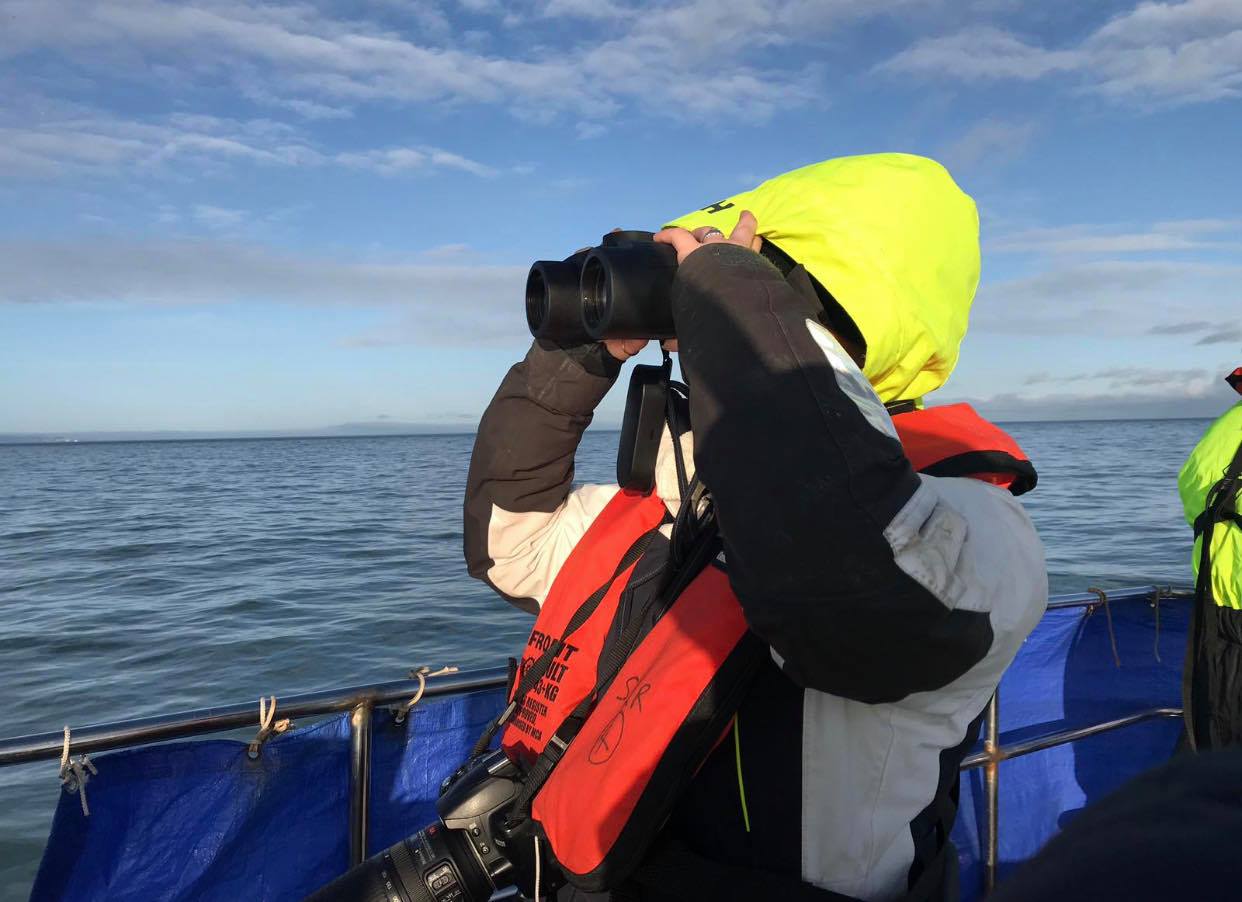A day in the life of a Marine Biologist!
While most people imagine a romanticised idealistic career of lounging on a tropical beach in the sun, the reality of working as a marine biologist can vary from desk-based statistical analysis to microbiology or field work, which can be in very challenging weather conditions.
ORCAIreland MMO on survey on the east coast of Ireland, November 2019.
The work of a marine biologist remains elusive and not clearly defined, so we have decided to shed some light on the trails and tribulations, of this greatly varied career path. At ORCAIreland, while the work we do with eco-tour operators - collecting data for innovative research projects on marine megafauna for conservation and public out-reach is completely voluntary, along with our citizen science initiative (the Observers App - available on Google Play - FREE), we have to eat too! That's where our consultancy team of professional ecologists and Marine Mammal Observers (MMO's) come in, putting the bread and butter on the table, because "you can't poor from an empty cup" and this year you too have the opportunity to become trained and qualified MMO, become a member of ORC to gain relevant experience and be added to our list of professional service providers. First though - let's dive into what life is actually like working as an MMO and what an MMO actually does.
The reality of being a marine biologist can be both physically and psychologically demanding. Particularly working as an MMO, as you need to be able to work long hours out-doors in not always nice weather conditions, withstand the constrained living conditions of a vessel, often for weeks at a time. On offshore projects, working seven days a week for weeks at a time is the industry standard, lodging with other crew personel, sometimes in remote areas with limited contact to the outside world. All of these factors, not to mention sea sickness can take its toll on the unprepared mindset for life at sea.
Survey days can be viciously cold in the winter, but they can also be very hot in the summer, with the blazing sun beating down on you, or worse, that cloudy sky can take a turn and you end up withstanding lashing rain, high winds and a large swell for a few hours.
Have I lost you to another career choice yet?..No?.... Good.
The bright side is "There is no such thing as bad weather, just bad clothing", and boy do MMO's know how to dress for the occasion. PPE can include a floatation suit, thickly insulated cover suits, and it is always recommended to wear layers of clothing underneath. Layers are key.
So what does an MMO actually do? - what are their responsibilities and role expectations?
A qualified Marine Mammal Observer must fully understand the project specific requirements for monitoring and mitigation. Depending on the type of activity being carried out, e.g. dredging, pile driving, seismic surveys or line-transect distance sampling surveys. They must also understand project specifications in regards to the geographical location of the project, type and numbers of animal species present in the area of interest, the specific industry related to the project and the laws/regulations of the countries territorial waters. Understanding the requirements of the permit is key for MMO's to make appropriate decisions based on sightings of species of interest.
The MMO walks a fine line between the requirements of robust monitoring and mitigation and the desires of the client to complete a project on time, with minimal additional expense. The MMO must always be professional and be prepared to validate to the client the survey or mitigation requirements when needed. MMO's are on-board to inform and guide a client, not to enforce regulations. The MMO is not an enforcer of regulations, but an impartial observer documenting field data and monitoring the area surrounding the clients activities.
Survey days can be long, usually 10 - 12 hours, and MMOs divide the duties of being on watch and on data recording. Surveys involve conducting effort-based watches, taking field notes and producing a daily report. In addition, empirical data collected includes specifications of the equipment used during the project, GPS locations of the vessel, and weather related information. Details of the sightings include, species identification, description, behaviour, and the detection method used to spot the animals.
There may be challenges and hardships working as an MMO, but it is also a very rewarding job. It is the MMO's responsibility to monitor an area for protected species and species of conservation concern. Knowing you are helping to reduce human impacts on marine mammals is a great feeling and many MMO's are really passionate about their work.
If you would like to find out more about our upcoming JNCC MMO course, please contact us with your name and number by emailing us at orcieland@gmail.com.
SHARE THIS ARTICLE















